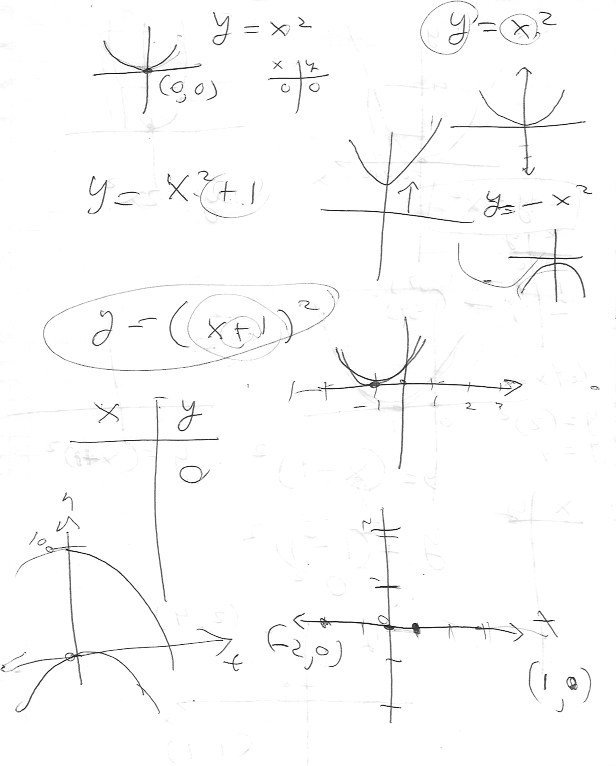locus plot (2015)
locus:
MATHEMATICS
a curve or other figure formed by all points satisfying a particular equation of relation between coordinates, or by a point, line, or surface moving according to mathematically defined conditions
TECHNICAL
a particular position, point, or place
plot:
MATHEMATICS
to place a point on a coordinate plane by using X and Y coordinates
LITERARY
the arrangement or presentation of events that make up a novel or story
One night after watching a fantastic BBC science documentary with physicist Jim Al-Kalili entitled The Secret Life of Chaos, I ended up down a rabbit hole in cyberspace looking at graphic renderings of mathematical formulae illustrating principles of physics. These schematics looked to me like choreographic notation documenting places on the stage and trajectories for action, with dancers – represented by numbers or letters – and their relationships with one another expressed through the use of symbols such as brackets, and signs for actions such as add, subtract, multiply and divide. I immediately began musing about the idea of using a set of schematic renderings as a choreographic score.
I knew that I wanted to involve vocalographer Fides Krucker with this project in order to use voice to embellish dynamic energies. And I knew that she and I would benefit from some tutoring in math, ideally by someone who could fathom how concepts concerning energy, mass, space, relationship, and movement could be employed as the basis for a performance piece. We were fortunate to find the perfect tutor in mathematician, math education innovator, and award-winning playwright John Mighton.
Fides and I were both totally energized and inspired by the new systems and structures for creation that emerged through our tutoring sessions. Composer John Kameel Farah joined us, assembling a huge set-up for live performance including a grand piano prepared with contact mics, a computer and an electronic keyboard. Together, we developed a full-evening work (the first I’d ever choreographed), collaborating with a tremendous cast of dancer/vocalists: Ric Brown, Sarah Fregeau, Kate Holden, Sean Ling and Sahara Morimoto. The Dora award-winning lighting design by Marc Parent incorporated projections of John Mighton’s hand written tutorial notes.
I always thought this piece had incredible potential to evolve and deepen through touring, but it was a large-scale production, and the possibilities never arose. However, on numerous occasions I did excerpt the closing solo for Kate Holden with a cluster of dancers dimly lit behind her in an upstage corner, and it never failed to speak to me of the awesome mystery of it all.
“…a wonder of intricacy and construction.” Kathleen Smith, NOW Magazine
“… math conjures ideas of a perfect universe, of elegance, harmony and precision. It’s these qualities that Baker is so good at both capturing and questioning in her piece… There’s a haunting tension between determinism and will in the piece. Tiny bits of chaos erupt and resolve within a system that may or may not be completely controlled.” Martha Schabas, The Globe and Mail
credits
choreography:
Peggy Baker
composer and musician:
John Kameel Farah
vocalography:
Fides Krucker
costumes:
Robyn Macdonald
lighting design:
Marc Parent
math consultant:
John Mighton
dancers:
Ric Brown
Sarah Fregeau
Kate Holden
Sean Ling
Sahara Morimoto
awards
Dora Mavor Moore award for Outstanding Lighting Design, Dance Division, for Marc Parent
Nomination - Outstanding Sound Design / Composition, Dance Division, for John Kameel Farah
premiere
Toronto
April 24 - May 3, 2015
Betty Oliphant Theatre
subsequent presentations
media links
See 2015 in the media and awards archive
photography
All photos by Makoto Hirata unless otherwise indicated.




















